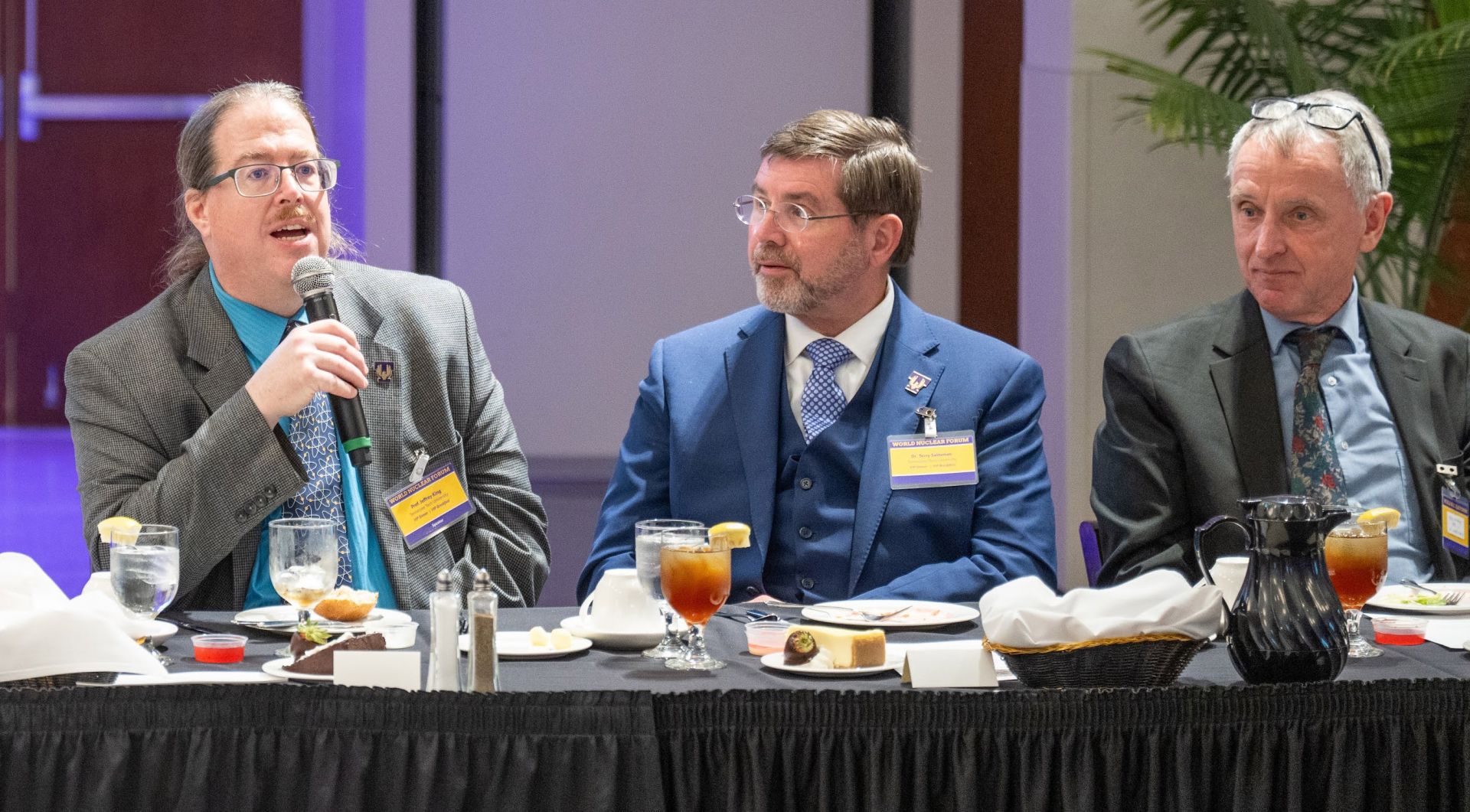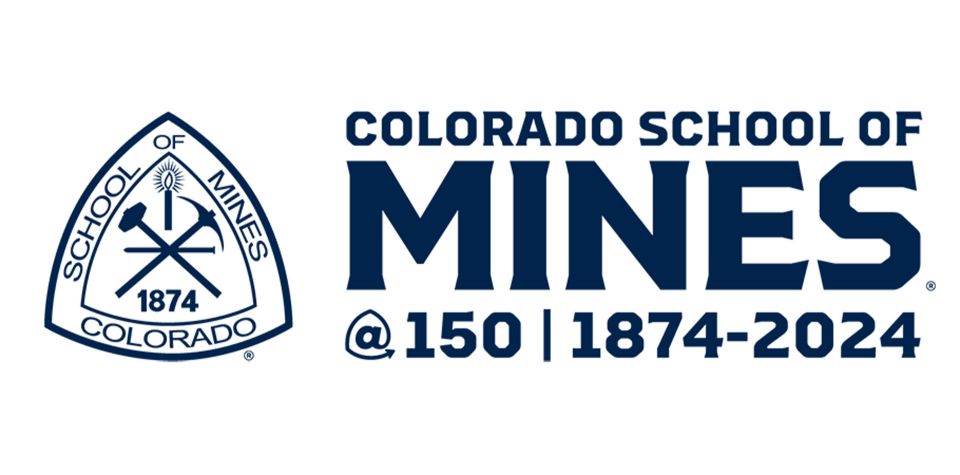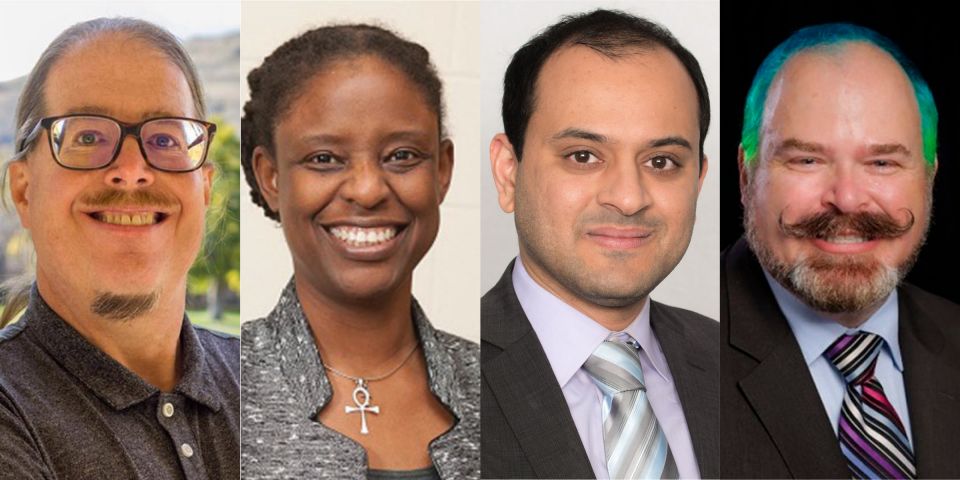Jeffrey King guides new nuclear program at Tennessee Tech

Jeffrey King
In August, the College of Engineering at Tennessee Technological University welcomed ANS member Jeffrey C. King as the founding director of its new nuclear engineering program. King, a leading force within the American Nuclear Society and a space enthusiast, is tasked with developing a new Department of Nuclear Engineering at Tennessee Tech after a more than 20-year absence of such a program at the university.
King comes to Tennessee Tech from the Colorado School of Mines, where he had been a professor of metallurgical and materials engineering for 15 years, leading the development of the nuclear science and engineering program and serving as director of the Nuclear Science and Engineering Research Center.

King (left) addresses attendees at the Distinguished Honored Guests Dinner at the inaugural World Nuclear Forum in October, hosted by Tennessee Tech. (Photo: Tennessee Tech)
In October, the new program had “a kind of debutante ball,” said King, when Tennessee Tech hosted the inaugural World Nuclear Forum. The forum was attended by a number of distinguished guests, including U.S. legislators Sen. Marsha Blackburn, Rep. Chuck Fleischmann, and Rep. John Rose, all of Tennessee; Justin Maierhofer, a regional executive for the Tennessee Valley Authority; Balendra Sutharshan, deputy for lab operations at Oak Ridge National Laboratory; and Craig Piercy, ANS Executive Director/CEO.
At the time of his appointment in July, King told the Tennessee Tech News that he was looking forward to building the nuclear engineering program’s faculty, facilities, and curriculum. “Tennessee Tech presents a once-in-a-lifetime opportunity to build a modern nuclear engineering program from the ground up around the needs of the future, especially with outstanding support from congressional, state, and industry leaders to advance Tennessee as a national leader in nuclear energy,” he said.
A statewide nuclear push
The announcement of the new nuclear engineering program came one year after Tennessee Gov. Bill Lee signed an executive order creating the Tennessee Nuclear Energy Advisory Council, which comprises 15 members with the responsibility of making recommendations to advance nuclear energy in the state. Lee has also allocated $50 million for a Nuclear Fund to “establish a nuclear development and manufacturing ecosystem built for the future of Tennessee by providing grants and assistance to support nuclear power–related businesses that choose to relocate or grow in the state,” according to a July 2023 news release from the Office of the Governor.
Tennessee Tech announced in May that the university would begin offering a bachelor’s degree program in nuclear engineering in order to help meet the expected growing demands in the United States for nuclear engineers. The university noted that “next-generation technology is driving the global transition to clean energy, and nuclear technology and processes are being used to treat diseases, develop new energy systems, and find new applications for processed nuclear materials.”
Part of this push to make Tennessee a national leader in nuclear, King explained, is the re-formation of a nuclear engineering program at Tennessee Tech. This response “is partly due to the high density of nuclear-related entities nearby, and a recognition that there are some significant challenges ahead,” he said.
Environment, space, and nuclear
King has family roots in the early days of nuclear energy. His paternal grandfather worked for Skidmore, Owings, and Merrill and lived with his family in Oak Ridge from 1948 to 1951 during that firm’s design and implementation of the Oak Ridge New Town Master Plan, which supported the growing Oak Ridge National Laboratory.
Years later, in 1969, King’s father was working for the U.S. Forest Service in Glenwood, Colo., when he saw the nuclear device from Project Rulison and felt the ground shake from the device’s detonation. That project was an Atoms for Peace study of the possibility of using nuclear explosives to increase natural gas production.
King earned his bachelor’s degree in environmental engineering from the New Mexico Institute of Mining and Technology in 1994, completing an undergraduate fellowship through Oak Ridge Associated Universities in the process. “As part of that degree, I developed a focus on radioactive waste management and environmental remediation,” King said. “This led to my joining the Savannah River Operations Office in the summer of 1994.”
When he decided he wanted to go back to grad school, he initially considered chemical and environmental engineering programs. “There is one alternate universe where I became an expert in the freezing of ice cream,” he joked. However, “Through luck, I met my future advisor, Mohamed S. El-Genk,” founding director of the Institute for Space and Nuclear Power Studies at the University of New Mexico, “who sold me on the possibilities of doing space nuclear power research.”
His career focus “really does come back to my love of science fiction and space exploration,” King said. (A fan of space science and science fiction, he will happily “go head-to-head with almost anyone on Star Wars and Star Trek trivia,” he boasts.) “Nuclear energy really is the power of the future. If we are ever going to go to the stars, it will be with nuclear energy. I like to say that space nuclear technology is the closest I can get to doing science fiction, without doing the fictional part.”
King earned his master’s and Ph.D. in nuclear engineering from the University of New Mexico. He has been a member of both ANS and the American Institute of Aeronautics and Astronautics and is a founding member and previous chair and treasurer of the ANS Aerospace Nuclear Science and Technology Division, as well as a member of the ANS Student Sections Executive Committee and Professional Divisions Committee. He was also the first chair of the Universities Space Research Association–sponsored Space Nuclear Working Group.
Last month at the ANS Winter Conference and Expo, King was presented by ANS President Lisa Marshall with a Presidential Citation for his activities and actions to support the U.S. goal toward space nuclear deployment and overarching efforts.
Throughout his academic and professional careers, King has explored a range of issues, including reactor physics, reactor design and analysis, space nuclear technologies, nuclear materials, the nuclear fuel cycle, high-temperature moderators, neutron imaging, additive manufacturing, computational methods, and public policy and outreach. He has served as the principal investigator on a number of projects, including the Nuclear Regulatory Commission–sponsored Colorado School of Mines Nuclear Science and Engineering Fellowship Program; the DOE Nuclear Energy University Program–sponsored Development of Hydrogen Transport Models for High Temperature Metal Hydride Moderators project; and the Fluor Marine Propulsion–sponsored In Situ Hydrogen Quantification, Migration, and Hydride Studies.
King says that his research pursuits have been guided by two main themes. “One is obtaining funds to support nuclear energy educational infrastructure and student support; that’s reflected in my various NRC grants and DOE-NEUP infrastructure awards. The other is the general-purpose chasing of research funds that all nuclear engineering professors must do.”
He continued, “With the two hydrogen/hydride projects—my two most recent grants—I have been able to pivot on addressing problems that are more directly applicable to space applications. Hydrogen mobility and hydride moderators are going to be very important to space nuclear reactors, as well as having significance across the nuclear industry. The Fluor Marine Propulsion project is more targeted at marine nuclear applications, but it will apply to space applications as well.”
From Colorado to Tennessee
In 2009, King was hired by the Colorado School of Mines to develop its graduate nuclear science and engineering program. In addition to serving as interim director of the nuclear science and engineering program (2010–2015) and as director of the Nuclear Science and Engineering Research Center (2016–2022) at CSM, King was president of the faculty senate and manager of the school’s foundry. (He still enjoys doing metal casting as a hobby.)
Of his move from Colorado to Tennessee, King said, “Tennessee Tech was able to lure me away this summer with their vision for a full nuclear engineering program—undergraduate and graduate—combined with the strong support from the state for the new program.” The new position also has opened up new research opportunities for King. “As part of the new nuclear engineering program at Tennessee Tech, I will get to set up a lab that will let me do some independent research on a variety of space nuclear topics. I’m hoping to go back to my master’s thesis and take a fresh look at alkali metal thermal to electric converters (AMTECs), which would be a game changer if we can solve some of the materials problems.”
Settling in and taking shape
Of the university’s fresh start in nuclear, King said, “Tennessee Tech did have a nuclear engineering department—and even at least one subcritical assembly—at one point. But the general preference—mine included—is to treat the new department as brand new rather than a restart or reopening. . . . I think the legacy is important, but we are going to be our own new thing. I am, however, looking for pieces as I settle in. . . . I’m hoping there are some interesting legacy bits.”
King has been extremely busy with the myriad duties that come with creating a nuclear engineering department and program, including hiring faculty and staff, developing the curriculum, and acquiring equipment for the laboratories. As he began building the department, he kept an overarching vision in his mind for how the program will benefit the U.S. nuclear industry. “A big piece of our focus is going to be workforce development,” he said. “While we are certainly going to have a good graduate program—this is a requirement to get good faculty—we are also going to work to develop our curriculum to provide work-ready graduates who can join a wide range of opportunities in the nuclear workforce. We are also working with the University of Tennessee–Knoxville on strategies to integrate with high schools, trade schools, and community colleges to develop an integrated pipeline for students into the nuclear industry at all levels.”
He continued, “The exact area of distinction [for the Tennessee Tech nuclear program] will depend somewhat on who we ultimately hire to fill out the faculty. Space nuclear technology—my personal interest—is going to be one of them. I’m also seeing us developing a strong radiochemistry and process controls focus. I do intend that our students will be exposed to relevant computer codes and techniques throughout their educational program.”
The U.S. Department of Education is helping King’s efforts. “We have a $3 million grant through the Department of Education to build up infrastructure for the program,” he said. “Some of that will be going to an on-campus neutron generator, which will allow us to study neutron interactions with matter, to produce neutron-rich radioisotopes for research purposes, and to do neutron imaging and neutron scattering work. We are also looking to buy or build an on-campus nuclear reactor simulator and a miniature nuclear process controls capability.”
King added, “We will be building out a couple of well-equipped radiation detection and measurement labs. We are considering how to incorporate Tennessee Tech’s strong experience in cybersecurity into the curriculum. I also expect—and we are starting to plan—to have a strong and integrated radiochemistry focus.”
Yet another aspect of King’s work involves the development of a radiation safety program. “That’s a bit of a new thing for Tennessee Tech, and we are going to rapidly expand the kinds of research and educational activities that we will be doing, which will require a strong radiation and environmental safety program. Fortunately, there are several of us with backgrounds in this area in the initial group of faculty.”
The program is expected to be moved from the existing Department of Mechanical Engineering to the newly formed Department of Nuclear Engineering once the undergraduate program receives accreditation and a graduate curriculum is developed. “The ultimate goal,” said King, “is for nuclear engineering to be an independent full department.” Beginning in the fall, undergraduate students began transitioning into the nuclear engineering major. There are currently 23 students in the program, and while he is currently the program’s sole nuclear engineer, King has approval to hire additional faculty this year—two tenure-track professors and one lecturer. Also on staff is a nuclear technician to support the program.
As the new Tennessee Tech nuclear engineering program and department take shape under King’s direction, its prospects appear to be bright. “The students in our undergraduate program are more than twice our initial expectations, while the graduate program is in the planning stages. Interest appears to be strong and growing. My personal goal for the program is for us to be ranked in the top ten nuclear engineering programs nationally at the end of the decade. Ten in 10 has a nice ring to it, as well as being achievable.”
The new program also has led to the formation of a new ANS student chapter. “We held an initial meeting on October 14, and the students have already started a Discord server and a GroupMe community,” King said. “We’re sending a group of students to the student conference in April and plan on submitting our charter paperwork in time for the ANS annual meeting in June.”



